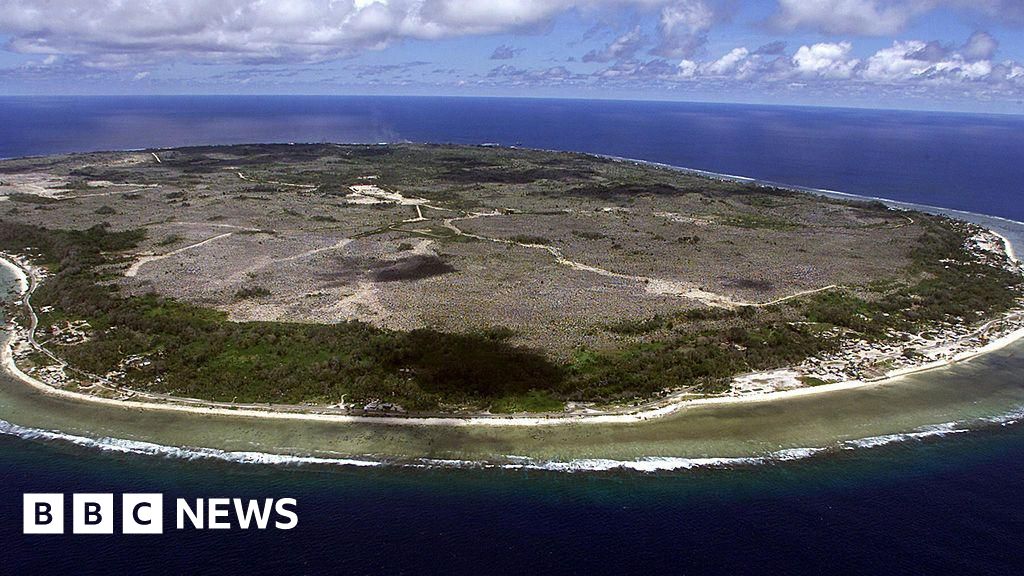
Australia has commenced the deportation of foreign detainees to Nauru, initiating a contentious agreement with the small Pacific island nation. This move follows a ruling by Australia’s top court that prohibited the indefinite detention of approximately 358 individuals, primarily convicted criminals, necessitating their release into the community.
In a statement on Tuesday, Australian Home Affairs Minister Tony Burke confirmed that “the first transfer had occurred” last Friday. However, the exact number of deportees remains undisclosed. Human rights groups have criticized the deal, which is projected to cost A$2.5 billion (£1.64 billion; $1.23 billion), arguing it contravenes Australia’s human rights commitments.
Secrecy and Human Rights Concerns
The Australian government has consistently refused to divulge details of the agreement concerning the so-called NZYQ cohort. Refugee advocates argue that the deal undermines the country’s human rights obligations. Laura John from the Human Rights Law Centre told SBS News that the plans have been “shrouded in secrecy from the outset.”
“We do not know if the person who has been exiled has left family behind in Australia, whether they need medical care that is unavailable in Nauru, or even if they still had visa appeal options in Australia,” John stated.
The NZYQ cohort refers to detainees released into the Australian community after a landmark High Court decision in 2023 deemed the government’s power to hold them indefinitely in immigration detention unlawful. Many of these individuals had been convicted of serious crimes, including assault, drug smuggling, and murder, leading to the cancellation of their Australian visas.
The Government’s Dilemma
The Australian government faced a complex challenge: unable to repatriate the former detainees to their home countries due to fears of persecution or non-acceptance by their governments, yet confronting significant public backlash over their release into the community. Last year, under Prime Minister Anthony Albanese, the government amended the Migration Act, enhancing its authority to deport non-citizens, a move critics labeled as “brutal.”
This amendment included provisions for compensating third countries to accept Australia’s deportees. Consequently, Australia turned to Nauru, finalizing an agreement earlier this year. Under this arrangement, deportees receive a 30-year visa allowing them to work and integrate with Nauru’s 12,500 inhabitants. The initial transfer triggers an upfront payment of A$408 million to facilitate the group’s resettlement in Nauru.
Lack of Transparency and Public Criticism
Despite these known details, much about the agreement remains undisclosed. “People are secretly being sent to Nauru, with key aspects of the deal still kept from the Australian public,” David Shoebridge, the immigration spokesperson for the Greens party, told Australian media. He criticized the plan’s opacity and the “contemptuous silence” from Minister Burke, expressing concern that once in Nauru, deportees could be returned to their home countries.
“No matter who you are or where you were born, governments should not be able to disappear you, send you off against your will to a country that you have zero connection to,” Shoebridge stated.
Minister Burke defended the arrangement, telling the Australian Broadcasting Corporation that he had inspected the accommodation and health facilities in Nauru, describing the standards as “good.” He emphasized that individuals who have demonstrated “appalling character” towards Australians should have their visas canceled and be required to leave.
Broader Implications and Future Outlook
This deportation deal is distinct from the arrangement for Nauru to manage Australia’s offshore immigration processing regime, which was scaled back following international criticism over the treatment and housing of detainees. The current situation reflects ongoing tensions between immigration control and human rights obligations, posing significant questions about transparency and ethics in governmental policies.
As Australia navigates this complex landscape, the implications of its decisions will likely reverberate through international human rights discussions and domestic political debates. The government’s next steps will be closely scrutinized by both advocates and critics, as the broader impact of this controversial deal unfolds.







